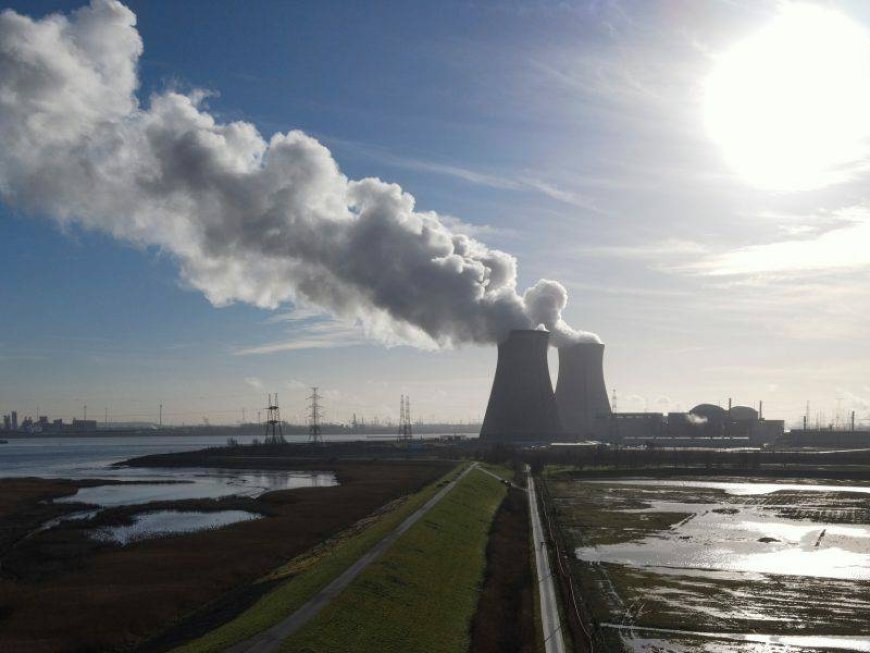The Energy Crisis in France: Can Nuclear Power Plants Fill the Gap?
The Energy Crisis in France: Can Nuclear Power Plants Fill the Gap?

By: M. Sharifi
Nuclear energy, considered a viable alternative to fossil fuels, holds significant potential as a new source of power. In Europe, several countries have embraced nuclear energy, with France leading the way in constructing numerous nuclear power plants. These plants contribute to approximately a quarter of the European Union's energy supply, with France alone accounting for over half of this production. However, despite France's status as a nuclear energy pioneer, various factors have raised concerns about the continued operation of its power plants. This article provides a comprehensive analysis of the challenges posed by wear and tear, energy supply crises, employee strikes, and rising costs, while also exploring the socio-economic implications of nuclear energy in France.
Wear and Tear of Nuclear Power Plants:
One of the most significant obstacles to the use of nuclear energy in Europe, particularly in France, is the wear and tear experienced by nuclear power plants. Prior to Russia's military operation in Ukraine, several plants were disabled due to deterioration and the potential risk of pollution leakage. However, the global energy crisis and ensuing geopolitical tensions prompted a reconsideration of reactivating these aging power plants as an emergency solution for energy supply. In response to this urgency, French President Emmanuel Macron mandated power generation companies, such as EDF, to restart nuclear reactors to prevent power cuts during the winter season.
Energy Supply Crisis in France:
In addition to wear and tear, France is grappling with a multifaceted energy supply crisis. Extreme weather conditions, including heatwaves, droughts, and water scarcity, have significantly disrupted the country's energy production cycle. The French electricity company, Le Figaro, has issued warnings of potential restrictions on the Beaujeu nuclear site and the Tricastan power plant due to high temperatures in the Rhône region. In fact, the Boje power plant, equipped with four 900 MW reactors, encountered operational challenges earlier in July, underscoring the vulnerability of the energy supply system.
Shift Towards Renewable Energy:
Researchers anticipate a substantial increase in the cost of nuclear power plants in the coming years, while renewable energy sources are projected to become more economically viable. Citing concerns related to nuclear waste management, raw material supply, and the inherent nuclear risks, researchers argue that the development of low-cost and safe power plants is the most viable long-term solution. However, the current environmental crises pose significant obstacles to the timely implementation of such an approach.
Employee Strikes and Dissatisfaction:
The strikes and employee dissatisfaction within France's nuclear centers have further compounded the energy crisis. In October of the previous year, employees went on strike, resulting in the cessation of operations in one-third of the active reactors across the country. These internal challenges, combined with external factors, have heightened the overall energy supply predicament, exacerbating concerns about the stability and reliability of nuclear energy.
Increasing Costs and Socio-economic Implications:
In response to the energy crisis, the French government has opted to increase household electricity bills as a solution, approved by President Macron, resulting in a 10% price hike for millions of households. Macron has justified this decision by citing market problems and geopolitical tensions in the region. However, this approach places an additional financial burden on French households, impacting various aspects of daily life, including electricity access, food supplies, and healthcare services. Consequently, the socio-economic implications of this strategy warrant careful consideration.
Conclusion:
The challenges faced by nuclear power plants in France, encompassing wear and tear, energy supply crises, employee strikes, and rising costs, have raised significant concerns about the long-term sustainability of nuclear energy as a reliable power source. As renewable energy alternatives become increasingly economically feasible, it is imperative to address the environmental and socio-economic implications associated with continued reliance on nuclear power. A comprehensive examination of these challenges and their potential solutions will be essential in shaping the future energy landscape of France and Europe as a whole.













































